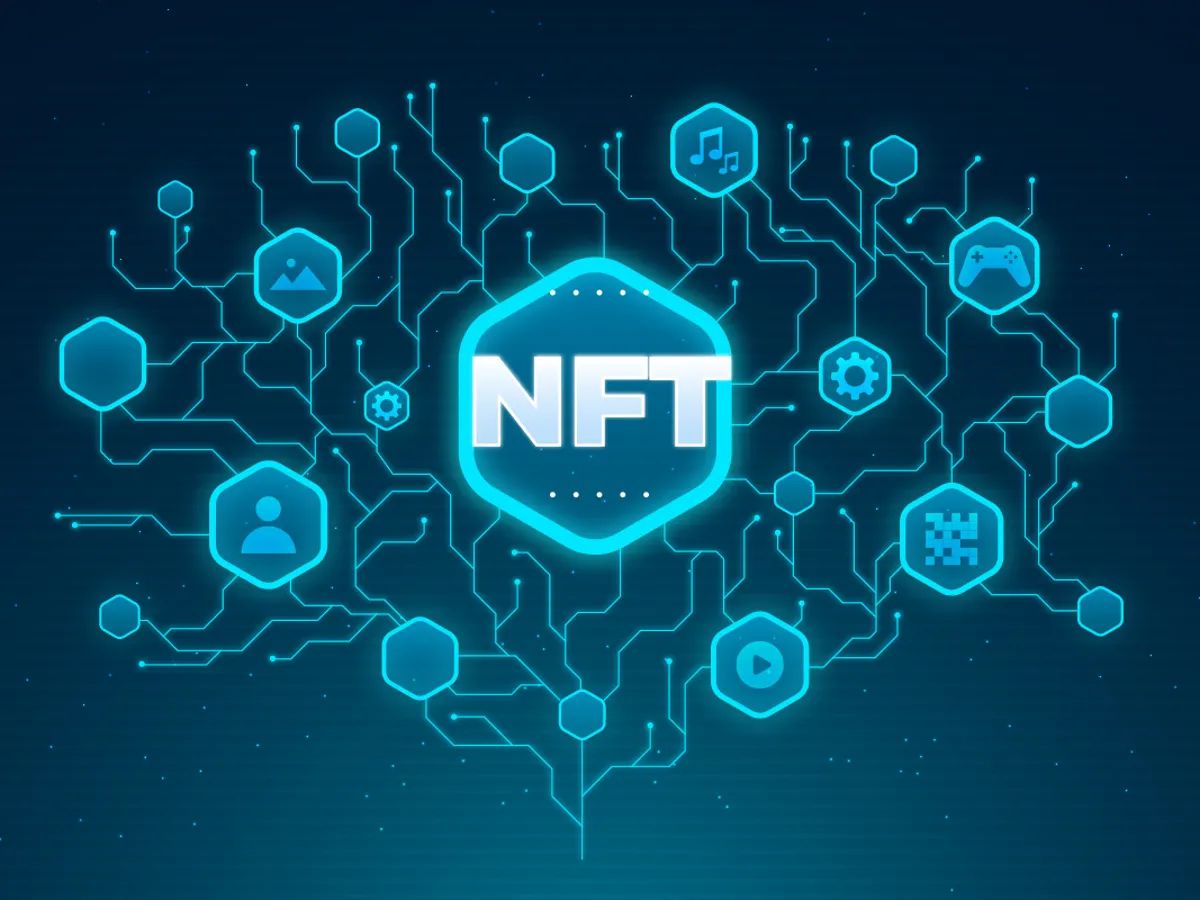Introduction
Welcome to the world of smart contracts and Hyperledger, where groundbreaking technology meets decentralized and secure transactions. In today’s digital era, traditional contracts often fall short in terms of efficiency, transparency, and reliability. This is where smart contracts step in to revolutionize the way we conduct business.
Smart contracts, powered by blockchain technology, offer an alternative approach to traditional contracts by automating and enforcing the terms of an agreement. Hyperledger, on the other hand, is an open-source collaborative effort that provides a framework for developing blockchain-based solutions.
With smart contracts, the need for intermediaries, such as lawyers or escrow agents, is reduced or even eliminated, leading to faster and cost-effective transactions. By leveraging Hyperledger’s robust infrastructure, organizations can harness the power of smart contracts to streamline their operations, enhance security, and ultimately elevate their business to new heights.
In this article, we will delve deeper into the world of smart contracts within the Hyperledger framework. We will explore the concept of smart contracts, understand the benefits they bring, and discover some compelling use cases that demonstrate their practical applications.
So, sit tight and join us on this journey of discovery as we unravel the potential of smart contracts in the context of Hyperledger.
What are smart contracts?
Smart contracts are self-executing digital agreements that are built on top of blockchain technology. They are essentially lines of code that automatically execute predefined actions when certain conditions are met. These contracts are stored, validated, and executed on a distributed ledger, ensuring transparency and immutability.
Unlike traditional contracts that rely on intermediaries to enforce the terms and conditions, smart contracts use cryptographic algorithms and decentralized networks to enable trustless and tamper-proof transactions. They eliminate the need for manual verification, reduce human error, and ensure that all parties involved abide by the predetermined rules.
The beauty of smart contracts lies in their versatility. They can be used to facilitate a wide range of transactions, from simple tasks such as transferring ownership of digital assets, to complex multi-party agreements, including supply chain management and financial derivatives.
Smart contracts are written in programming languages specifically designed for blockchain platforms, such as Solidity for Ethereum and Chaincode for Hyperledger Fabric. They contain a set of instructions and conditions that define the terms of the agreement, as well as the actions to be taken when those conditions are met.
By removing the need for intermediaries, smart contracts drastically reduce transaction costs and speed up the execution process. They eliminate the possibility of fraud or manipulation since the code is immutable and transparent, making it nearly impossible to tamper with the contract once it is deployed on the blockchain.
Overall, smart contracts revolutionize the way agreements are formed, executed, and enforced. They bring automation, efficiency, and trust to a wide range of industries, making them a key component of decentralized applications and blockchain ecosystems.
Hyperledger framework
The Hyperledger framework is a collaborative effort by the Linux Foundation to develop open-source blockchain technologies and tools. Unlike public blockchains like Bitcoin or Ethereum, Hyperledger is designed for permissioned networks, making it an ideal choice for enterprise-grade solutions and consortiums.
At its core, Hyperledger provides a modular and scalable platform that enables organizations to build and deploy blockchain-based applications. The framework includes various components, such as Hyperledger Fabric, Hyperledger Sawtooth, Hyperledger Indy, and more, each tailored for different use cases and industries.
Hyperledger Fabric, the most widely adopted platform within the Hyperledger family, provides a highly flexible and customizable framework for developing blockchain solutions. It offers features like permissioned access, pluggable consensus protocols, and the ability to create private and consortium networks.
One of the key advantages of Hyperledger over public blockchains is the ability to control and limit access to network participants, ensuring that only authorized parties can engage in transactions and access sensitive data. This makes Hyperledger particularly appealing to industries that require strict privacy and compliance measures, such as finance, healthcare, and supply chain management.
Furthermore, Hyperledger provides robust tools and libraries that assist developers in building, testing, and deploying smart contracts. These tools include Hyperledger Composer, which offers a user-friendly interface for designing and creating business networks, and Hyperledger Caliper, which enables performance benchmarking of blockchain networks.
With its flexibility, scalability, and enterprise-grade features, the Hyperledger framework has gained widespread adoption in industries across the globe. It boasts a vibrant community of developers, enterprises, and academia collaborating to advance the technology and explore innovative use cases.
As the Hyperledger ecosystem continues to evolve, more companies are recognizing the immense potential of combining smart contracts with this powerful blockchain framework. The result is a revolution in how businesses collaborate, transact, and create value in a secure and trusted manner.
Benefits of using smart contracts in Hyperledger
Integrating smart contracts into the Hyperledger framework brings a multitude of benefits to organizations seeking to optimize their operations and enhance their business processes. Let’s explore some of the key advantages:
Immutability and transparency:
Smart contracts on Hyperledger are stored on a distributed ledger, ensuring that once a contract is deployed, it becomes immutable. This means that no party can alter or tamper with the contract’s terms, ensuring the integrity of the agreement. Additionally, the transparent nature of blockchain technology allows all parties involved in a transaction or contract to have visibility into the same set of data, promoting trust and accountability.
Efficiency and automation:
Smart contracts automate various aspects of contract execution and enforcement, reducing the need for manual intervention and streamlining processes. By eliminating intermediaries and manual verification, transactions are executed faster, and administrative overhead is reduced. Additionally, automation minimizes the chances of errors and discrepancies, leading to greater overall efficiency.
Enhanced security:
Hyperledger provides a secure and permissioned environment for deploying smart contracts. With robust consensus mechanisms and cryptographic algorithms, the framework ensures the integrity and confidentiality of the contract data. The decentralized nature of the Hyperledger network also reduces the vulnerability to single points of failure and external attacks, significantly enhancing the security of transactions and contracts.
Cost savings:
By leveraging smart contracts in Hyperledger, organizations can drastically reduce transaction costs associated with traditional contract enforcement. The automation and elimination of intermediaries result in lower administrative and operational expenses. Additionally, the ability to bypass third-party services for verification and execution further reduces costs, making smart contracts a cost-effective solution.
Improved traceability and auditability:
Smart contracts on Hyperledger provide a transparent and auditable record of all transactions and contract activities. Every action executed by the contract is recorded on the blockchain, creating an immutable trail that can be easily audited and traced back to its origin. This feature is particularly valuable for industries like supply chain management or finance, where traceability and auditability are essential.
Incorporating smart contracts into the Hyperledger framework unlocks a range of benefits that streamline operations, enhance security, and reduce costs for businesses. As organizations continue to explore the potential of blockchain technology, the adoption of smart contracts in Hyperledger is rapidly becoming a strategic advantage in today’s digital landscape.
Immutability and transparency
One of the key features of smart contracts in Hyperledger is the immutability and transparency they offer. These characteristics bring numerous benefits to organizations utilizing the technology, enhancing trust, accountability, and efficiency.
Immutability:
Smart contracts on a Hyperledger blockchain are immutable, meaning once they are deployed, their code and terms cannot be changed or tampered with. This immutability ensures the integrity and permanence of the contract, eliminating the risk of fraudulent activities or unauthorized modifications. Immutability provides a high level of confidence for all parties involved in a transaction, as they can trust that the contract will execute exactly as intended.
Transparency:
Hyperledger’s distributed ledger technology promotes transparency by making the contents of smart contracts and their associated transactions visible to all participants on the network. Everyone involved in a transaction can access and view the same set of data, creating a shared source of truth. This transparency brings accountability, as any changes or actions recorded on the blockchain can be traced back to their origin, eliminating disputes and ensuring a consistent view of the contract’s state.
The immutability and transparency of smart contracts in Hyperledger offer several benefits:
Enhanced Trust and Confidence:
Immutability and transparency foster trust among parties by eliminating the need to rely on intermediaries or third parties to enforce contract terms. With smart contracts, parties can independently verify the execution of the contract based on the transparent and unalterable records stored on the blockchain. This increased trust enables efficient and secure business interactions without the need for additional verification and validation steps.
Reduced Disputes and Fraud:
By having a shared and transparent view of contract terms and actions, potential disputes and fraudulent activities can be significantly reduced. Parties can refer to the immutable records on the blockchain to resolve any disagreements quickly. Additionally, the transparent nature of smart contracts makes it difficult for malicious actors to manipulate or forge transactions, enhancing the overall security and integrity of the contract execution process.
Faster Auditing and Compliance:
Auditing the execution of traditional contracts often requires time-consuming manual processes and cooperation from multiple parties involved. With transparent smart contracts in Hyperledger, auditors can easily access the blockchain’s immutable records and trace a transaction’s history. This streamlined auditing process reduces costs and efforts, making compliance and regulatory reporting more efficient.
Efficient Dispute Resolution:
In the event of a dispute, having a transparent and verifiable record of contract terms and actions facilitates quick and fair dispute resolution processes. The immutability of smart contracts ensures that the original agreement cannot be modified, ensuring a fair and objective resolution based on the terms recorded on the blockchain. This increased efficiency in dispute resolution minimizes costs and delays for all involved parties.
The immutability and transparency of smart contracts within the Hyperledger framework bring significant advantages to organizations across various industries. These features build trust, promote accountability, and streamline business processes, ultimately fostering a more efficient and secure transaction environment.
Efficiency and automation
Smart contracts in the Hyperledger framework offer a remarkable opportunity for organizations to vastly improve efficiency and automate various aspects of their operations. By leveraging the power of blockchain technology, these contracts enable streamlined processes, reduce manual intervention, and enhance overall business productivity.
Elimination of Intermediaries:
One key aspect of smart contracts is their ability to remove the need for intermediaries in transactions. Traditionally, transactions often involve multiple parties and intermediaries, such as lawyers, brokers, or escrow agents, which increase complexity, time, and costs. Smart contracts facilitate direct peer-to-peer interactions, bypassing intermediaries and reducing the associated expenses and delays. This elimination of intermediaries leads to greater efficiency and quicker transaction processing times.
Automated Execution and Contract Enforcement:
Smart contracts are self-executing agreements that automatically execute predefined actions when specific conditions are met. Once deployed on the blockchain, they execute with precision and consistency, eliminating the need for manual intervention or oversight. This automation results in faster and more accurate contract execution, reducing the potential for human error and enhancing efficiency.
Streamlined Processes:
By automating processes through smart contracts, organizations can streamline various operations within their businesses. These contracts can be designed to include predefined rules and requirements, ensuring that transactions and tasks are executed consistently and in compliance with relevant regulations. This streamlining of processes reduces the time and effort required for manual intervention, freeing up resources for other critical tasks.
Reduced Administrative Overhead:
The automation and efficiency of smart contracts significantly reduce administrative overhead. Manual tasks such as contract creation, verification, and enforcement can be time-consuming and resource-intensive. With smart contracts, these processes are automated, saving valuable time and resources. Organizations can allocate their resources more effectively, focusing on strategic initiatives instead of routine administrative tasks.
Faster Settlements and Payments:
Smart contracts accelerate the settlement and payment processes. Traditional methods of settling transactions often involve lengthy clearing and settlement periods, particularly in complex financial transactions. With smart contracts, transactions can be settled in near real-time, ensuring swift and secure transfer of assets or funds. This efficiency improves cash flow management, reduces settlement risks, and increases liquidity for businesses.
Efficiency and automation are crucial benefits of utilizing smart contracts within the Hyperledger framework. The removal of intermediaries, automated execution, streamlined processes, and reduced administrative overhead empower organizations to enhance productivity, reduce costs, and optimize overall business operations.
Enhanced security
One of the key advantages of using smart contracts in the Hyperledger framework is the enhanced security they provide. By leveraging the power of blockchain technology, smart contracts offer robust security measures that mitigate risks, protect sensitive data, and ensure the integrity and confidentiality of transactions.
Decentralized and Immutable:
Smart contracts in Hyperledger are stored and executed on a decentralized network of nodes, making them resistant to single points of failure or tampering. Once a smart contract is deployed on the blockchain, it becomes immutable, meaning its code and terms cannot be altered retrospectively. This immutability ensures that the conditions and logic encoded in the contract remain intact and cannot be manipulated by malicious actors.
Cryptographic Security:
Hyperledger employs advanced cryptographic algorithms to secure smart contracts and the underlying transactions. These algorithms ensure the confidentiality, integrity, and authenticity of data exchanged within the network. By utilizing cryptographic mechanisms such as digital signatures, hash functions, and encryption, smart contracts on Hyperledger protect the privacy of participating parties and prevent unauthorized access or data manipulation.
Permissioned Access:
Hyperledger operates on a permissioned network where only authorized participants can access and interact with the blockchain. This permissioned access ensures that the network remains secure and limits the potential for malicious activity. Organizations have control over who can join the network and engage in transactions, enhancing the overall security of smart contracts.
Consensus Mechanisms:
The Hyperledger framework supports various consensus mechanisms, such as Practical Byzantine Fault Tolerance (PBFT) or Proof of Stake (PoS), which enable agreement on the validity of transactions within the network. These consensus mechanisms ensure that all participants reach a consensus on the state of the blockchain, preventing malicious actors from compromising the network. By employing robust consensus mechanisms, Hyperledger enhances the security and reliability of smart contracts.
Auditable and Transparent:
The transparent nature of blockchain technology enables all participants to have a complete and auditable record of transactions and contract activities. This transparency promotes accountability and discourages fraudulent behavior, as any unauthorized changes or discrepancies can be easily identified and traced back to their source. Smart contracts on Hyperledger provide a comprehensive and tamper-proof audit trail, enabling efficient auditing and regulatory compliance processes.
Overall, the enhanced security measures inherent in smart contracts within the Hyperledger framework provide organizations with a reliable and trustworthy platform to conduct their digital transactions. By leveraging decentralized networks, cryptographic security, permissioned access, consensus mechanisms, and transparency, Hyperledger enables organizations to instill confidence in their business interactions and protect critical assets and data.
Use cases for smart contracts in Hyperledger
The versatility and power of smart contracts within the Hyperledger framework open up a wide array of use cases across various industries. Let’s explore some of the notable applications of smart contracts in Hyperledger:
Supply Chain Management:
Smart contracts can transform supply chain management by automating and streamlining various processes. From ensuring traceability and authenticity of products to automating payment settlements and enforcing compliance, smart contracts in Hyperledger enable transparent, efficient, and secure supply chain operations.
Finance and Banking:
Smart contracts in Hyperledger can revolutionize financial transactions, such as loan agreements, insurance claims, and cross-border payments. By automating complex and time-consuming processes, smart contracts enhance efficiency, reduce costs, mitigate fraud, and enable faster settlement and reconciliation of financial transactions.
Healthcare:
In the healthcare industry, smart contracts can be utilized for various purposes, such as managing patient data, streamlining medical record sharing, and facilitating secure and transparent billing and insurance claims. By removing bureaucratic hurdles and ensuring data privacy, smart contracts in Hyperledger can significantly enhance healthcare information management and healthcare service delivery.
Real Estate:
Smart contracts can transform the real estate industry by automating property transactions, including property purchase agreements, rental contracts, and property transfers. By reducing the need for intermediaries, improving transparency, and enhancing security, smart contracts in Hyperledger can accelerate the process of buying, selling, and leasing properties while minimizing the risks associated with traditional real estate transactions.
Intellectual Property:
With smart contracts in Hyperledger, the management and protection of intellectual property rights can be greatly enhanced. Artists, authors, and creators can utilize smart contracts to automate royalty payment processes, establish digital rights management frameworks, and enable direct licensing and distribution of digital content without the need for intermediaries.
Voting Systems:
Smart contracts can introduce transparency and security into voting systems. By leveraging the immutability and transparency of blockchain technology, smart contracts in Hyperledger can enable secure and verifiable voting processes, ensuring tamper-proof data integrity and enhancing trust in electoral systems.
These are just a few examples of the diverse use cases for smart contracts in the Hyperledger framework. From supply chain management and finance to healthcare and real estate, smart contracts offer significant potential for transforming industries by automating processes, enhancing security, and enabling efficient and transparent transactions.
Conclusion
The adoption of smart contracts within the Hyperledger framework presents a remarkable opportunity for organizations to revolutionize their operations and unlock immense value. Smart contracts bring efficiency, automation, enhanced security, and transparency to a wide range of industries, paving the way for transformative business processes and improved collaboration.
With the immutability and transparency of smart contracts, organizations can foster trust, reduce disputes, and enhance the overall efficiency of their transactions. The elimination of intermediaries, streamlined processes, and automated execution lead to cost savings and faster completion of tasks. Moreover, the enhanced security measures embedded in smart contracts within the Hyperledger framework mitigate risks, protect sensitive data, and ensure the integrity and confidentiality of transactions.
Smart contracts in Hyperledger offer numerous use cases across industries such as supply chain management, finance, healthcare, real estate, and more. By leveraging the power of blockchain technology, organizations can optimize operations, reduce costs, and unlock new business opportunities.
As the Hyperledger ecosystem continues to grow and evolve, the integration of smart contracts will play a pivotal role in shaping the future of business transactions. By embracing this innovative technology, organizations can gain a competitive edge, improve customer experiences, and drive innovation in their respective industries.
It is clear that smart contracts in the Hyperledger framework are a catalyst for change, enabling organizations to redefine how they conduct business, interact with stakeholders, and create value. The potential benefits of incorporating smart contracts are immense, making it imperative for forward-thinking companies to explore and leverage this groundbreaking technology.

























